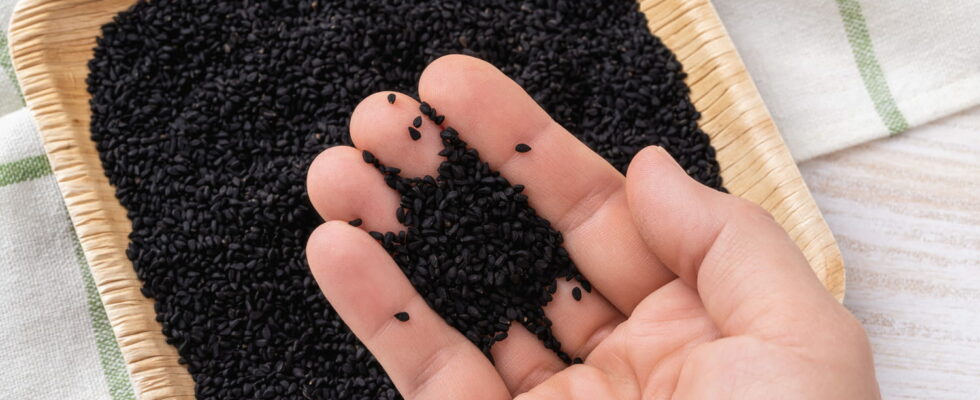It has been used as a medicinal plant for over 2,000 years.
Rapid fatigue after meals, repeated snacking, weight gain… You may be the victim of blood sugar spikes. This phenomenon occurs when blood glucose levels rise quickly and excessively. Glucose is an essential source of energy for our body but its quantity must remain stable. Neither too much nor too little. It is the blood sugar level which indicates the amount of glucose in the blood. A balanced diet and regular physical activity help regulate blood sugar levels. Other natural remedies can also help on a daily basis. The seeds of a medicinal plant used for 2,000 years, for example.
Thanks to its main active compound called “thymoquinone”, these seeds can improve hyperglycemia. “They help control diabetes at all levels: they reduce fasting blood sugar, postprandial blood sugar (2 hours after a meal), glycated hemoglobin and insulin resistance, while increasing insulin secretion”explains Dr Carole Minker, doctor of pharmacy and pharmacognosy. Of the studies have also highlighted other benefits for the body, notably antioxidants, antihistamines and even anxiolytics. To which plant do we owe all these benefits?
Nigella, a plant from the Ranunculaceae family, with a magnificent blue flower. “It is also called “black cumin”, although it has no botanical link with cumin”continues Dr. Minker. The seeds of nigella are pressed to obtain a vegetable oil that can be ingested. “We recommend it in the form of edible oil to add to seasonings for example, but be careful not to cook it.” The expert recommends consuming 1 teaspoon 3 times a day. “It can also be taken in the form of capsules to swallow”at a rate of 2 capsules 1 to 2 times a day.
Nigella can be found in organic stores, natural health stores, drugstores and specialized sites. Dr Minker reminds us that it is necessary “check your blood sugar regularly when taking antidiabetic treatment. Ask for advice in case of serious illness or heavy medication treatment before taking black seed oil. And avoid therapeutic dosages during pregnancy and in children as a precaution.”
Thanks to Dr Carole Minker, doctor of pharmacy and pharmacognosy and author of the book “Le Petit Larousse de l’Herboristerie” published by Larousse.
